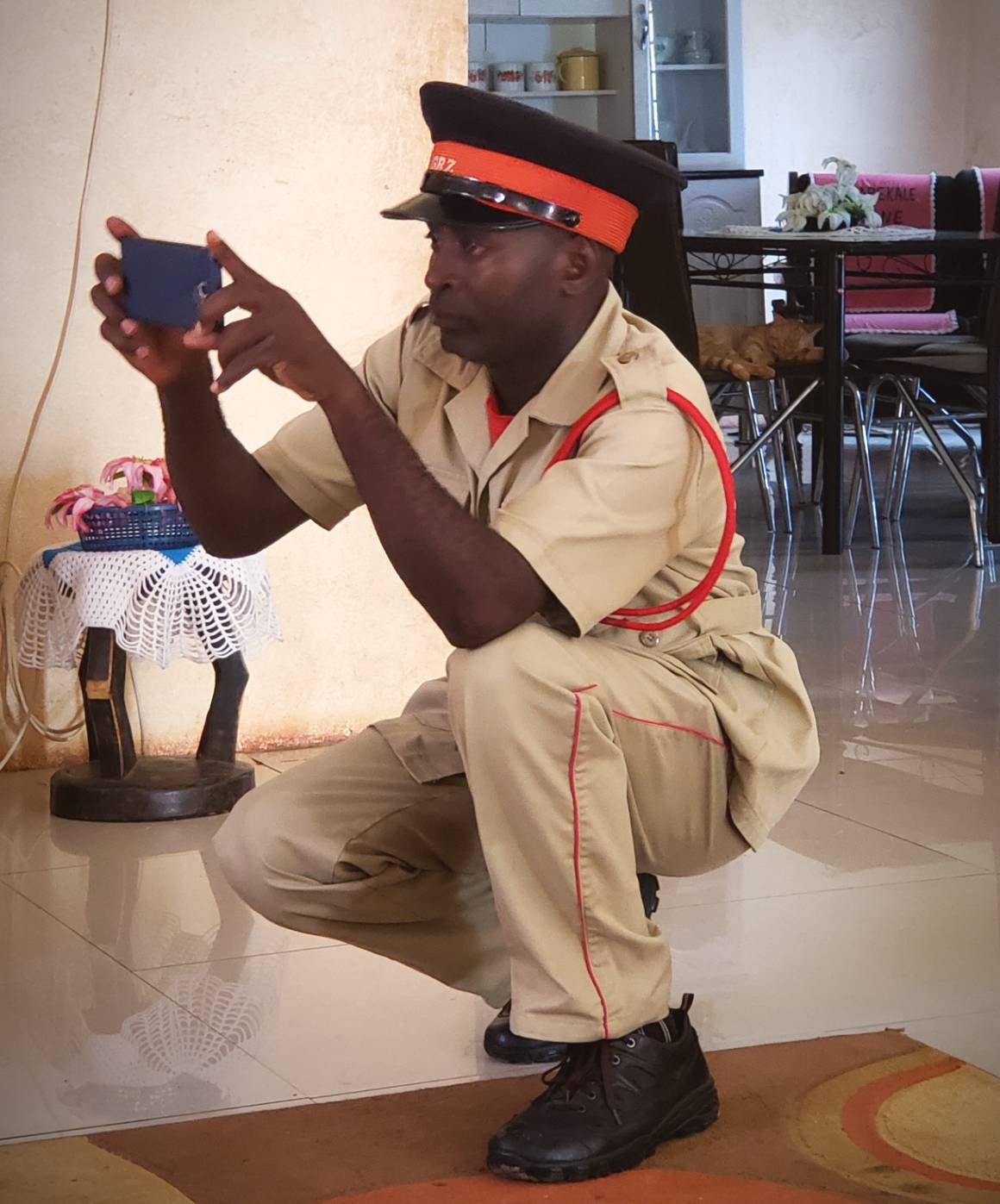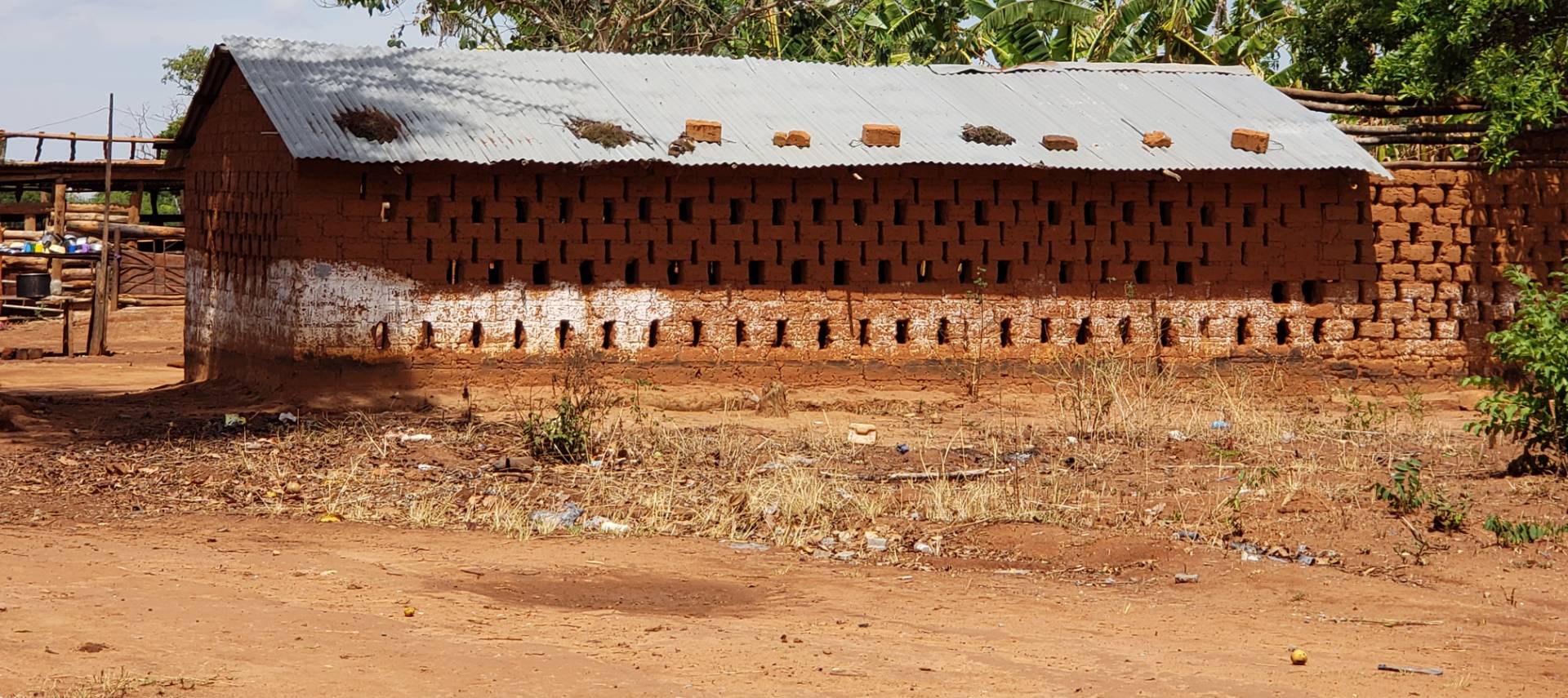By Michelle Fish
Before independence, before colonialism, this part of Africa was governed by tribal chiefs representing their respective ethnic groups, going back generations. And they are still here. There are more than 70 distinct ethnic groups in Zambia and unlike the sometimes violent experience in other countries (think Rwanda and the Congo), tribal diversity in Zambia is model of peaceful co-existence.
How the power is balanced between the elected government and the royal succession of chiefs is hard to measure for an outsider. I do know this from our friends in Ndola: nothing gets done in the region without Senior Chief Mushili’s consent. He is a very big deal, the most senior Chief of the Lamba tribe, and one of the most respected Chiefs in Zambia. It was our great honor to have been invited to meet with him, along with our Living Hope International friends Leo Fox, Kim Cooke, Davies Chipoya and Lee Davis.
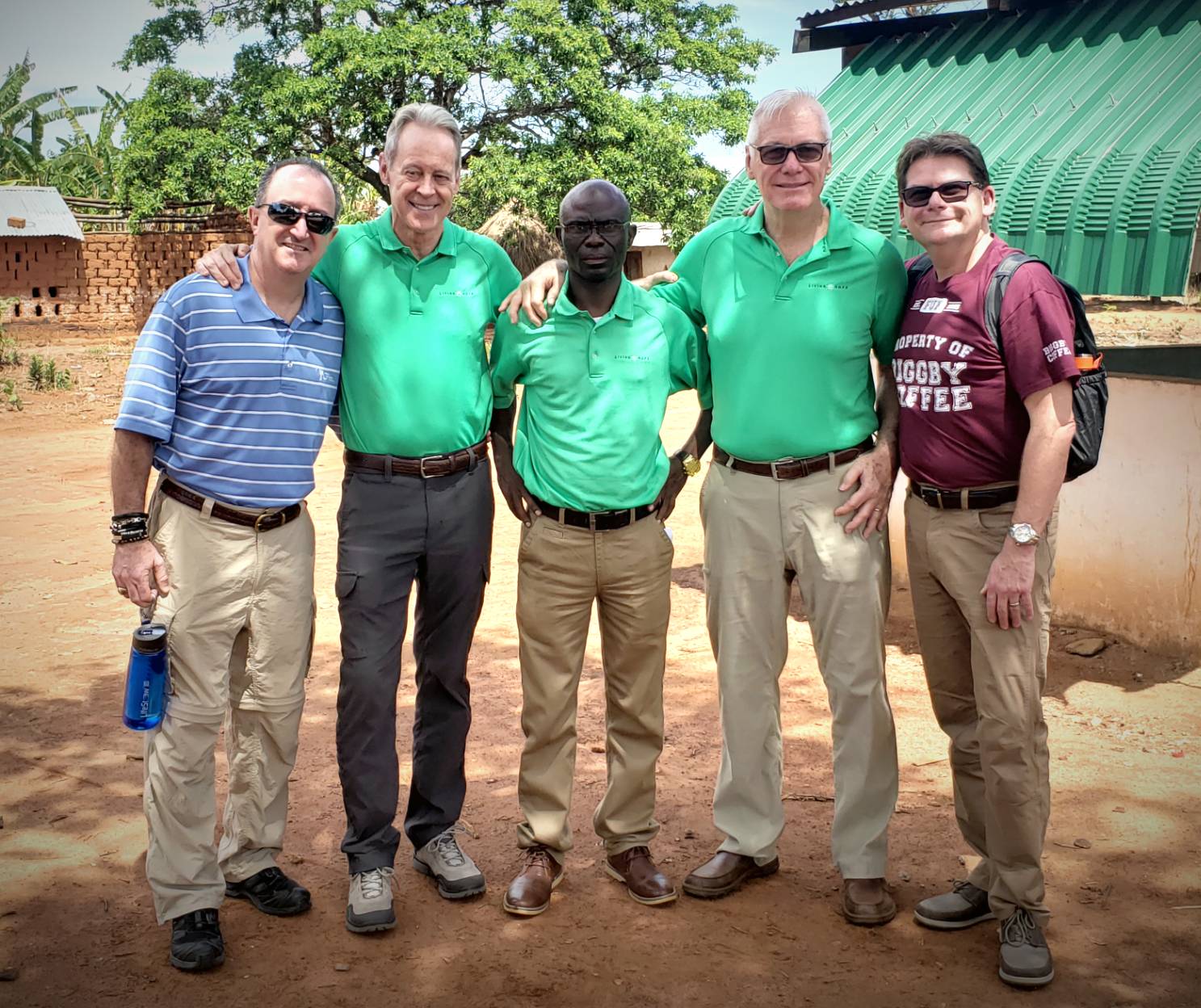
We arrived at the compound where he lives with his extended family on a hot, dusty morning. We were shown to the waiting hut, a sheltered spot 20 yards away from his residence. And we waited. We bantered and told stories – these gentlemen are particularly fun group to hang out with, and they’ve got some great stories – and I watched the children shyly watch us, as they trailed their mothers attending to chores.
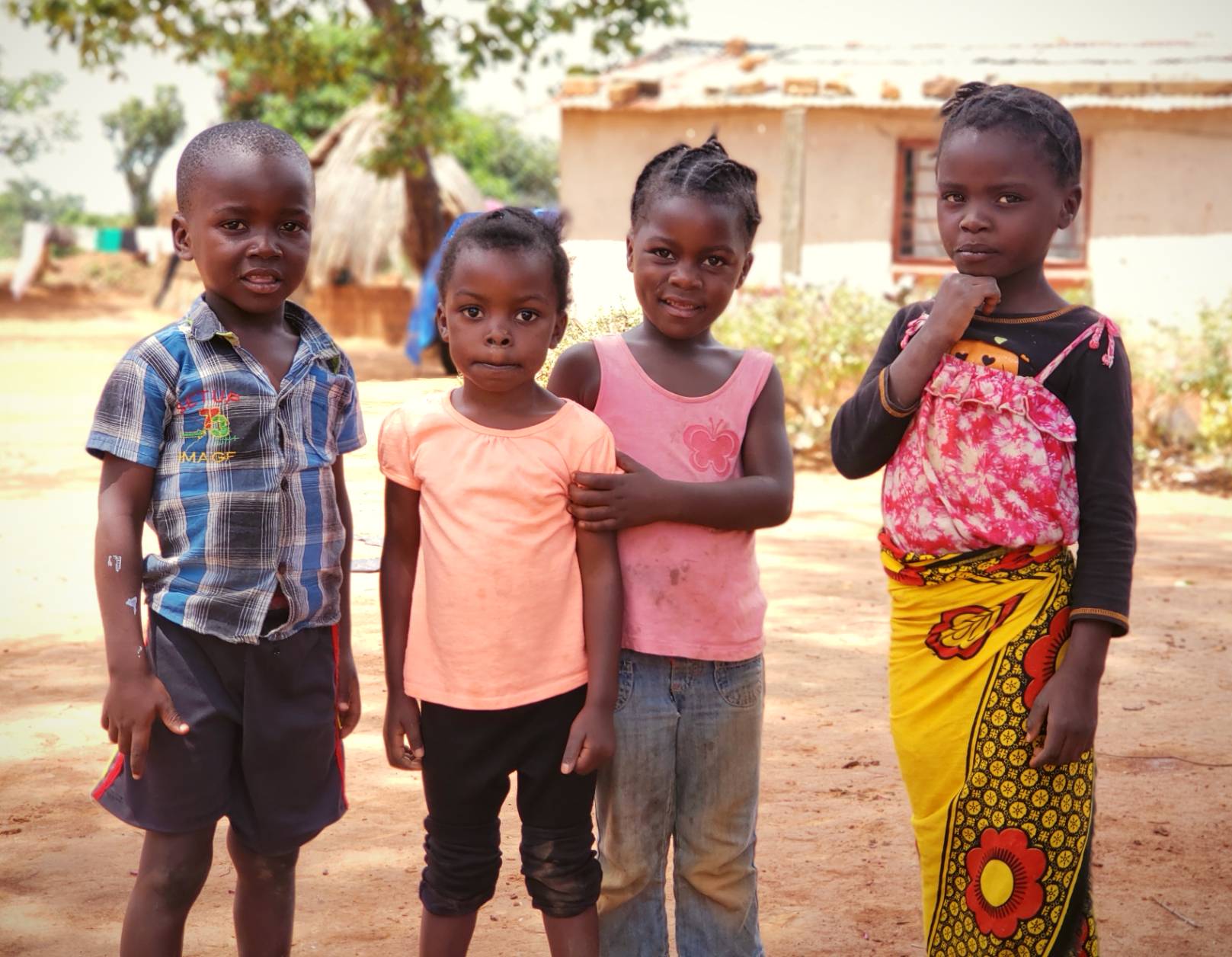
After about two hours, we were led to the residence by one of the soldiers in Chief’s honor guard. Kim had explained that there was a distinct etiquette to meeting the chief. It involved us entering the building on our knees, heads slightly bowed, making a kind of clapping motion with our hands. That’s all the prepping Bob and I received, and I had no idea what would happen when the clapping stopped. Turns out, it was easy. We followed the lead of those around us, stood when they stood, took our seats, and paid our respects.
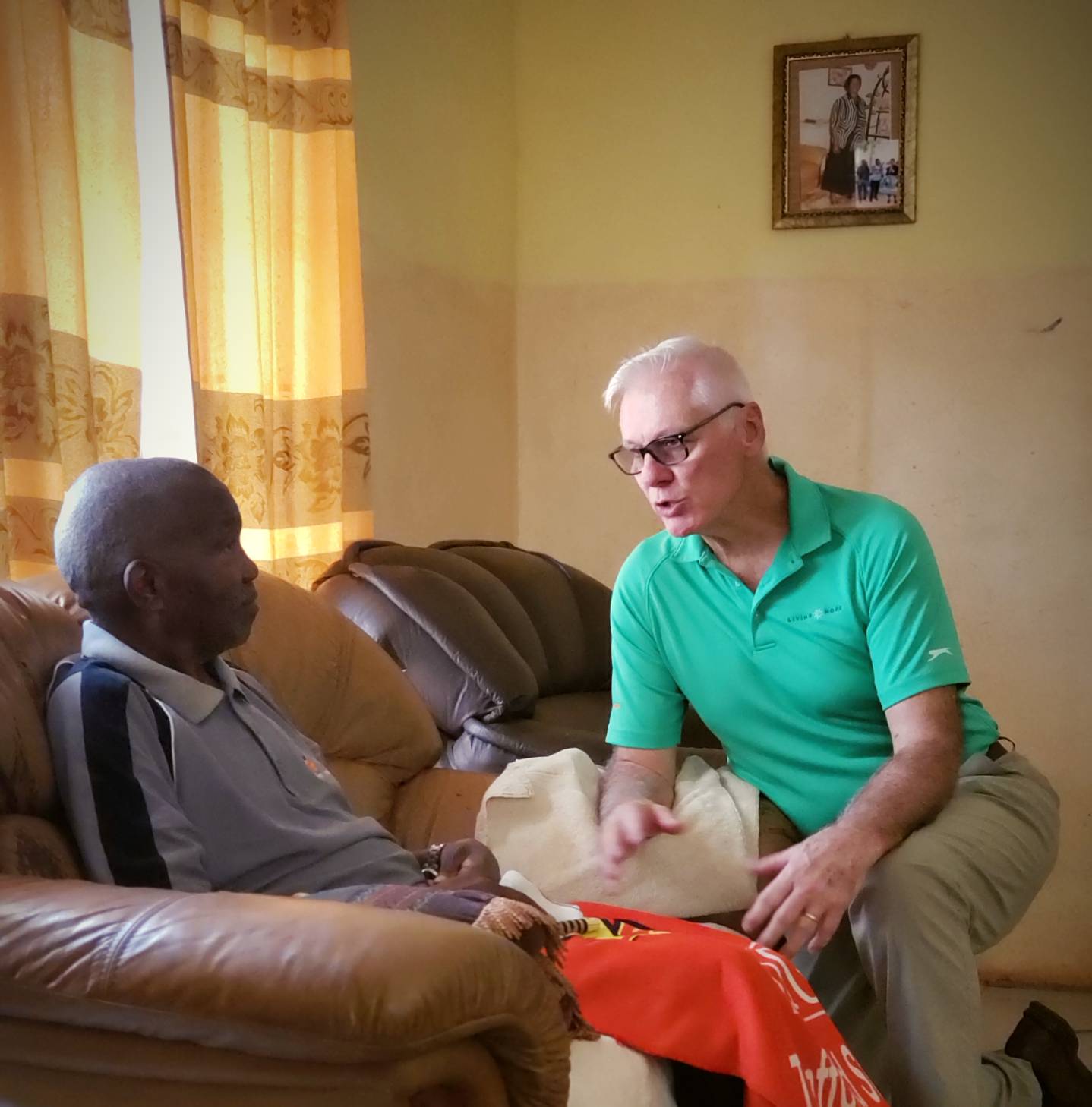
It’s not a stretch to say that there would be no Living Hope International Orphanage without Senior Chief Mushili. Land ownership is a complicated process in Zambia in which the Chiefs are the final arbiter, but registered land holders have some property rights, too, and local elected governments have almost no say. In 2009, the Chief helped Davies secure the land of seven women who were subsistence farmers in exchange for the promise of jobs for those women, potable water for the community, and ultimately, a medical facility and school that will be for the use of the Lambas. And, of course, an orphanage for the at-risk population of children in the bush. It was a remarkable deal that made possible all of the progress LHI has made so far. And they’ve kept their end of the bargain, with water pumps, soccer fields and steady, good paying jobs in coffee production.
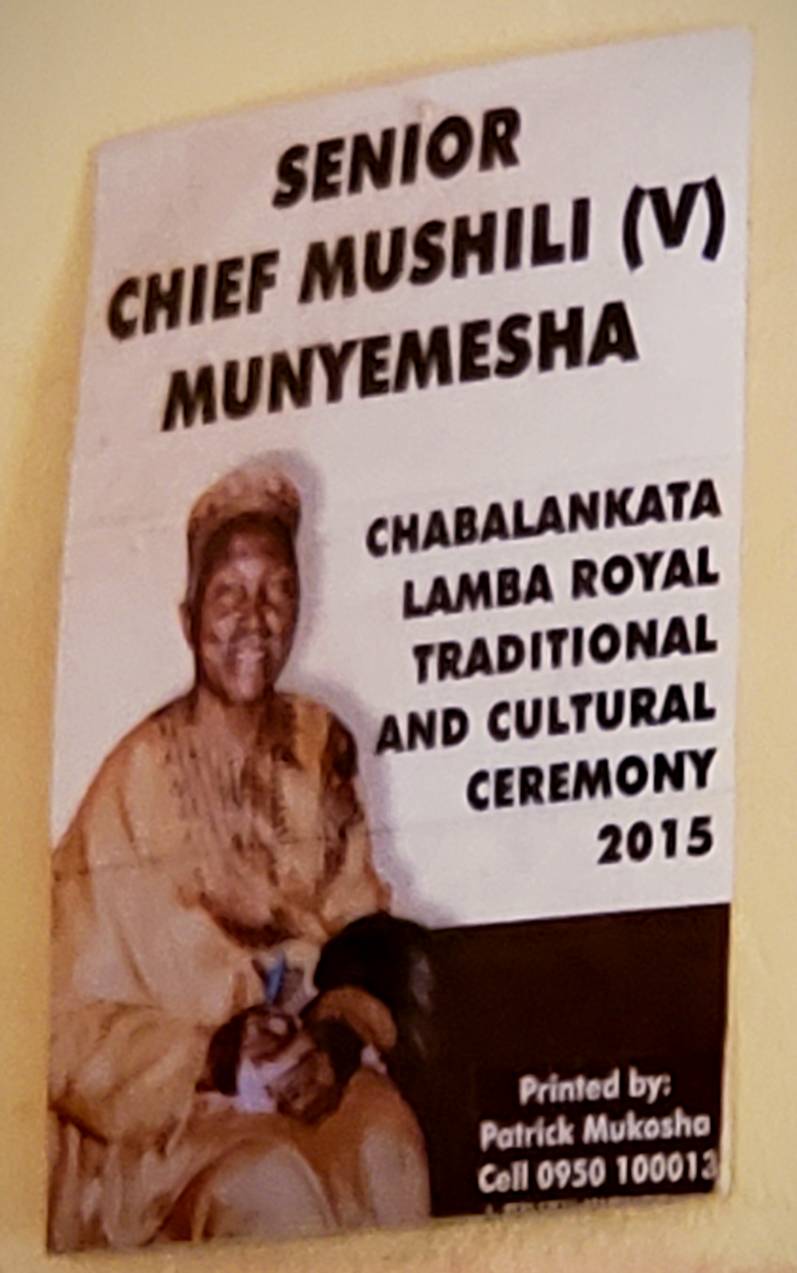
As the LHI coffee farm grows, they are developing more of a co-op model with other land-owners in the area, helping them to get started with coffee plants, farming help, irrigation and the like. They share in the proceeds of the harvest, helping to create a viable economic future for many where there was none.
Sadly, Senior Chief Mushili is quite ill. He has spent his life working to raise the living standards for his people. His partnership with the Living Hope International Orphanage is a fitting example of the kind of legacy he will leave.
